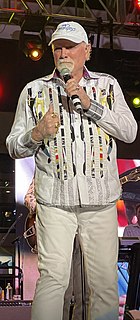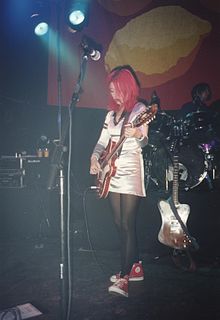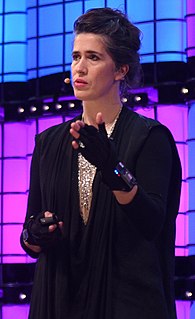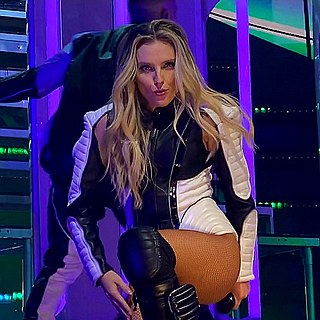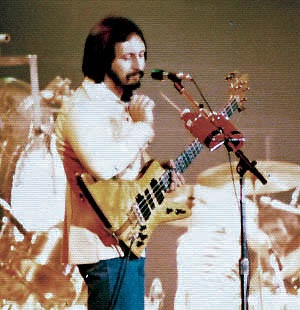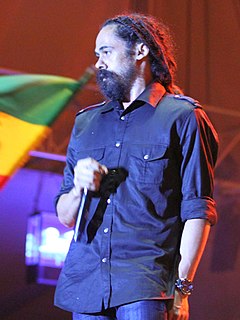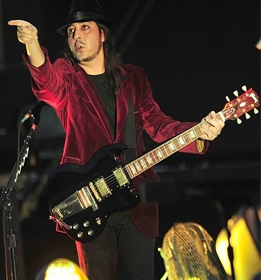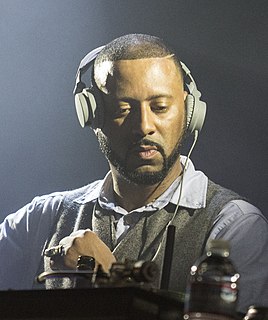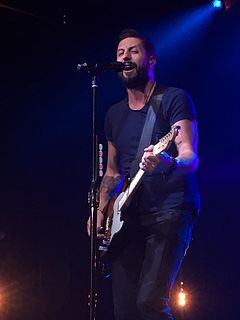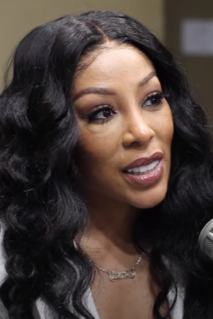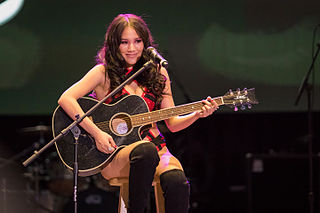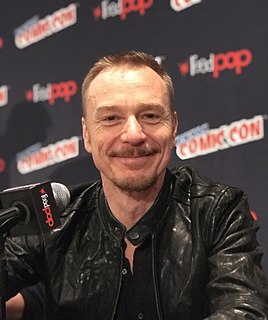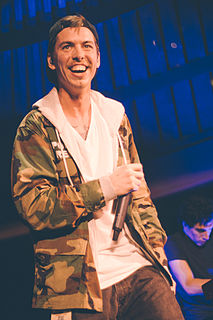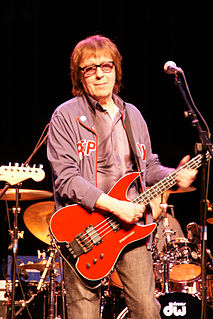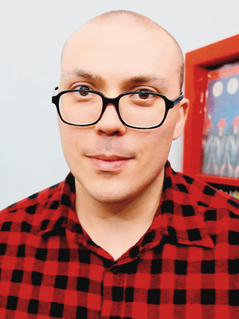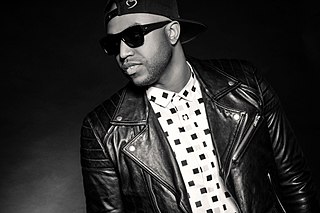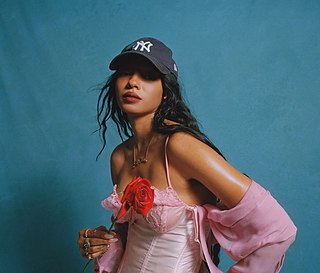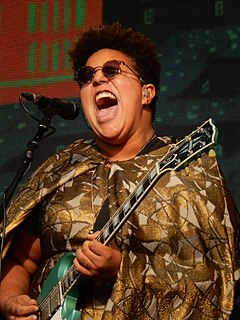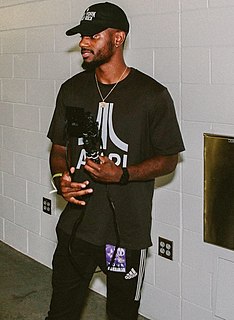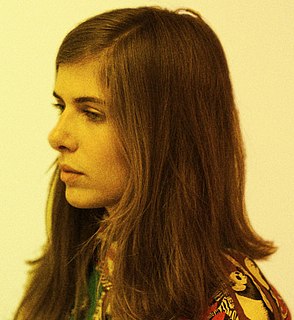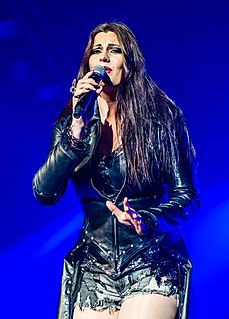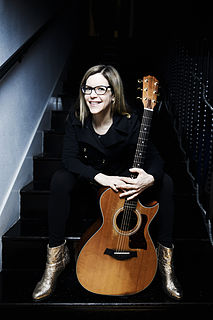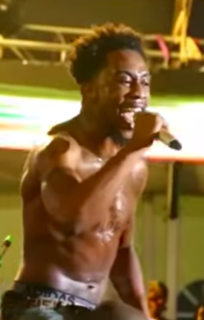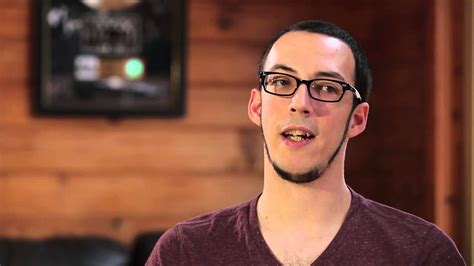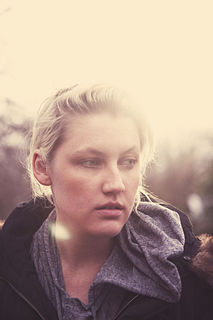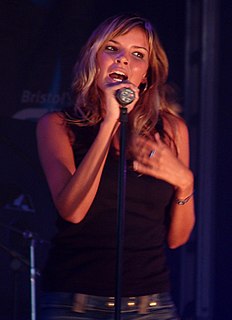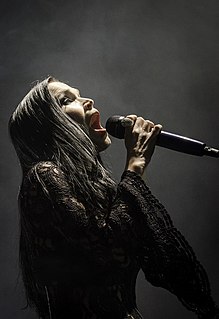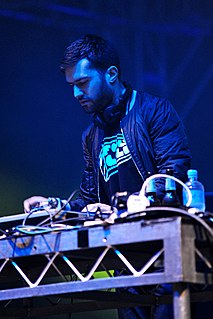Top 262 Vocals Quotes & Sayings - Page 4
Explore popular Vocals quotes.
Last updated on December 18, 2024.
I went down to London with the idea that I was going to do vocals over this crazy, crazy trip-hop digital beat. Within two or three months, I heard Hunky Dory by David Bowie and that changed me in one way, and I realized what I actually wanted was to have an E Street Band - individuals, not session musicians.
I'm interested in creating a little sound world for songs, really crafting it, building it, and making it like a little doll's house with little things inside it, staircases and rooms and everything kind of relates to everything else. I've never seen it as drums, bass, guitar and vocals in very separate spaces.
The Blue album, there’s hardly a dishonest note in the vocals. At that period of my life, I had no personal defenses. I felt like a cellophane wrapper on a pack of cigarettes. I felt like I had absolutely no secrets from the world and I couldn’t pretend in my life to be strong. Or to be happy. But the advantage of it in the music was that there were no defenses there, either.
I sang in a reggae band. And then there was a soul band where I sang back-up vocals and some lead. And I was also in a women's a capella group. And I was in the gospel choir at school. Actually, I've always been in choirs. Or some kind of group. Just because I love singing so much. But I truthfully never thought of it as a career.
I can remember the first time I ever recorded my vocals on to a beat. Cat Coore from Third World - a legendary Jamaican band - had a little demo set up at his house. I'm very good friends with his eldest son, Shiah, who plays with me now. So we were rhyming over a track by the dancehall artist Peter Metro. I've still got it somewhere.
I like to sit in front of the computer, going through files of music, and recording the final vocals, guitars and what- nots. But the windows are always open and you can hear the crickets, birds, chickens, and even the sound of rain hitting the studio. The farm is a great place to hang out in, learn from and create music.
Caitlin Cary and I were always talking about X when we talked about whiskeytown, before it became an actual band. We like the concept of there being no real front person in X, yet this kind of switch up of vocals and really their sheer power, and their ability to sort of bastardise punk rock and midwetsren rock and even country into their own sound.
The thing that separates Sophie from the music I do for other people is that it's 100% written by me. In the past, I've written my songs and then asked friends if they could record the vocals. I didn't want to use my own voice, because other people have much better voices. I was hearing the music with a voice that I don't have.
EDM has trained a new generation of listeners' ears to accept a much broader range of what equals a song. EDM has become top 40 stuff: those sounds, those styles, those ways of thinking about song structure - even thinking that vocals aren't necessarily the central element - those ideas have made their way into popular culture.
Most records, you build from the drums and bass up. This one, we started with the vocals in Nashville and recorded them live with just the guitars and tried to make that complete and lovely-sounding without any adornment at all. I really wanted to get something with the vocal that I've never gotten before Armchair Apocrypha.
I actually produced other people's vocals for a long time when I first signed my publishing deal and I had just sort of decided that I only wanted to be a writer. I would be in all of these writing sessions, and a lot of times my publisher would say, "You should get a demo singer to sing it because then it doesn't identify as a Solange song."
There's a few times in the past when I wrote a song, and I put the words together, and they were very clear pictures, and I felt like I was putting together a really good story. But I don't think I was ever really able to stay on that. What I've sort of developed lyrically is more about the sound of the vocals and what they are.
I say that drums and bass should be very prominent, with vocals being the most important thing, and maybe very little guitars. I conclude by calling for no songs over five minutes and saying that I'm sure we'll fail at anything like what I describe, but hopefully we'll do that in an interesting way. Plans never work!
Why is it rappers feel like they have to show each other their balls? It's so frustrating to me and the fact that I've come to the realization that I'm not playing that game and I'm just happy whether I'm sitting on the keyboard, up on the stage, or doing post edit vocals alignments for someone I don't even know, I'm happy. I am successful in my own eyes.
I could definitely rock out to Kraftwerk's "Tour De France," Tubeway Army, or Gary Numan. All of that stuff has an infectious beat, but with "Oh Yeah," I can't even identify what's going on. It sounds like typewriter keys, a couple of synth notes and then this really deep "Oh yeah," which I always picture as Andre The Giant on vocals.
It's just a lot of fun to be able to see your ideas come into fruition. And to see people translate the things that come out of my mind vocally. And to be able to produce vocals and give people my point of view musically. And to be able to sit in the crowd and see people sing the song that I wrote, it's an amazing feeling.
I could always hold a melody, but I was never like, I'm going to be a singer. So I'm able to use that when I write. I'm actually playing the beat with my voice. Instead of thinking about coming up with melodies, it's like filling in the instruments. So sometimes it's better to have beats with less melodies in them, because then I can play more with my vocals.
I can't draw. But I can draw with sound. That's the most useful thing I learned in terms of what my craft is... The arrangements were mine. They were little lines and stuff that I had written myself... And I was locked into this idea that vocals didn't count, melodies didn't count, songwriting craftsmanship didn't count. The only thing that counted was high arching guitar solos...
There's not a whole lot to do in Athens. When I was 13, I just started entertaining myself by writing songs. I'd sit in my room for 10 hours playing the same song, stacking vocals, trying out different drum beats, realizing no one would ever hear this but having so much fun. I guess I got my voice from just doing that so often.
I feel connected to every song on this record [ 'Modern Vampires Of The City' ], but yeah I think there's something special about 'Young Lion'. It's pretty different from any song that we've had before because the vocals are kind of between two different very simple instrumental piano melodies and it's almost like something that we call a vignette, it's sort of like a miniature.
Vocals are not central to what I do, and I've never liked singing live. I've always been more inspired by rhythm, texture, harmony than vocal melodies and lyrics. Plus, for me, I can better express my musical ideas through instrumental music than vocal music, the emotional interpretation of which can easily supersede the actual musical content or aim.
Not only do you need great lyrics, a great message, a great story, great vocals, great chords... you also need great instrumentation, great editing, great sonics, great mixing, and great mastering. It all comes together to make something truly great, and I think each element combines together to create a powerful impact on the consumer.
Lately I haven't been able to write for the guitar - it'll usually start out with a melody on the bass, and I'll layer vocals. I just can't really physically hear the guitar anymore, so I'll just go into GarageBand and play around with the keys. I'll sit on a melody or some lyrics for a really long time and just play with it.
It's amazing what you can do in your bathroom! I would do vocals and stuff on my computer that would need to be sent to London or New York for things to be added on, and I was thinking they always say you sound good in the bathroom - but then I'd kick the bin, or someone in the next room would flush the chain or something and I'd be like 'oh no!'
After 10 years, I have been touring for 20, playing basically the same type of music, a four-piece or three-piece type of music with loud, crashing drums and screaming vocals. It gets to the point where you're looking for something new, and you don't want to do something that's way too left-field, for fear that it might seem contrived.
When I started Fool's Gold and producing consistent records that were like electro beats with rapping on it that was experimental and weird. I made a mixtape called Dirty South Dance where I put rap vocals over dance music. That was literally an experiment. Now all these rappers are rapping on dance music. This is something I've been trying to build for a while.




